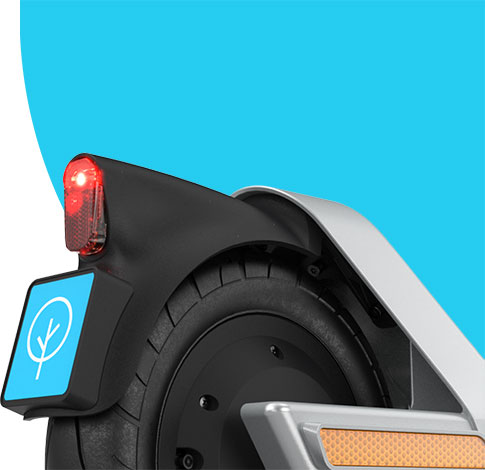Celebrating International Women’s Day: “The Most Effective Way to Do It, Is to Do It”

At Bird, part of our culture and tradition is to share “Shout Outs” during our company-wide all hands meetings. Shout Outs can be given by anyone within the company to acknowledge and celebrate the contribution one person, or a team, has made in advancing Bird’s mission.
Today I’m breaking with tradition and giving a public, collective Shout Out to the incredible women who are improving transportation in cities around the world and trailblazing the path toward micromobility. Together these women, the remarkable women of Bird, and countless others serve as models of inspiration on this journey.
Impacting the World’s Infrastructure, One City at a Time
When a Bird was still just a winged creature (and not an e-scooter), before cities were creating e-scooter pilot programs, and prior to last-mile transportation becoming a widely known concept—women like Sarah Myland Kaufman, Janette Sadik-Khan, Seleta Reynolds, and Laura Ballesteros were hard at work advocating for and writing policy to (quite literally) pave the way toward equitable city accessibility.
Janette Sadik-Khan, the former commissioner of the New York City Department of Transportation, wisely stated, “If you can change the street, you can change the world.” Internationally respected for her transformative redesigns of New York City streets, Sadik-Khan inspired urbanists and transportation advocates all over the world to see that we can modify our car-centric cities to embrace clean, people friendly mobility.
Also in New York, Sarah Myland Kaufman, a transportation planner and author of The Pink Tax on Transportation: Women’s Challenges in Mobility, conducted instrumental research and developed policies to embrace micromobility options and drive support for cities to embrace alternative transit.
In our own backyard of Los Angeles, Seleta Reynolds implemented the Great Streets for Los Angeles plan, which lays out her vision for reducing the number of traffic fatalities, doubling the number of people riding bikes, and increasing access to integrated transportation choices – such as the LA Metro. In the epicenter of the ‘car culture’, Reynolds’ initiative takes a bold stand against the status quo, and prioritizes what cities should be built for, people.
Outside of the United States, in one of the most congested cities in the world, Laura Ballesteros is a global leader in Mexico City’s sustainable mobility movement. As a Congresswoman during the 2012-2015 legislative period, Ballesteros built the regulations and policies for Mexico City in mobility and road safety. Ballesteros’ Mobility Law changed CDMX’s roads to be more focused on public and sustainable transport and ensured the city recognized mobility as a social right.
Bringing Micromobility to Communities
Building upon the work of Ms. Sadik-Khan, Kaufman, Reynolds, and Ballesteros that created the opportunity needed to have effective transportation-focused conversations, women such as Oakland Councilmember Rebecca Kaplan are now putting into practice the framework for micromobility options in their communities.
Rebecca Kaplan has represented the City of Oakland for ten years and currently serves as the city’s Councilmember At-Large. She was one of the first city representatives in the world to fully realize the power of e-scooters — embracing them as a means for sustainable and inclusive transit. Kaplan continues to advance an e-scooter ordinance focused on ensuring companies are providing an equitable and affordable service for all Oakland residents.
Protecting All Road Users
Each day, we all use the road outside of our car — whether we are walking, running, skateboarding, cycling, or Birding. And each day, there are people who look out for us when we get outside of our cars to move about our communities. I’m thinking of individuals such as Michelle, the incredible crossing guard at my children’s school who, rain or shine, is at the ready to help students and parents safely and confidently cross a busy street. This is a critically important job and one that she does with a smile as she encourages more people to get out of their car and walk that block to school. We should all be lucky enough to have a Michelle in our neighborhoods.
Bird’s Global Girl Squad
Whether you’re Sarah in Virginia who uses Bird to run weekly errands, or Gok who moved to Atlanta without a car and uses Bird to get to class, women across the world are integrating alternative transit into their daily lives and challenging our deeply held bias toward cars. Our female chargers are consistently making sacrifices to better themselves, their families and our planet. Take, for example, Brittney in Memphis who charges for Bird as a way to make extra income for her family or Andrea in Tempe who charges to help combat the rising costs of education. Every day these women prove that anyone anywhere can contribute to the movement to reduce traffic and carbon emissions — all they need is access.
But don’t just take my word for it.
“Riding bird as a female I personally don’t think it’s any different to riding as a male, which is one thing I really like about it. In a world where we’re progressively moving towards equality, it’s nice to have the same two wheels and be able to just get around and have a good time.” – Sharilynn B.
Shouting Out
As Amelia Earhart, the first female aviator to fly solo across the Atlantic Ocean said, “The most effective way to do it, is to do it.” We couldn’t agree more. Today, we celebrate these women and their can-do, “do it” approach as they show the leadership and courage needed to improve transportation everywhere. We hope you join us in giving Shout Outs to the women you know who are helping everyone more easily move about our cities and communities.
#InternationalWomensDay
